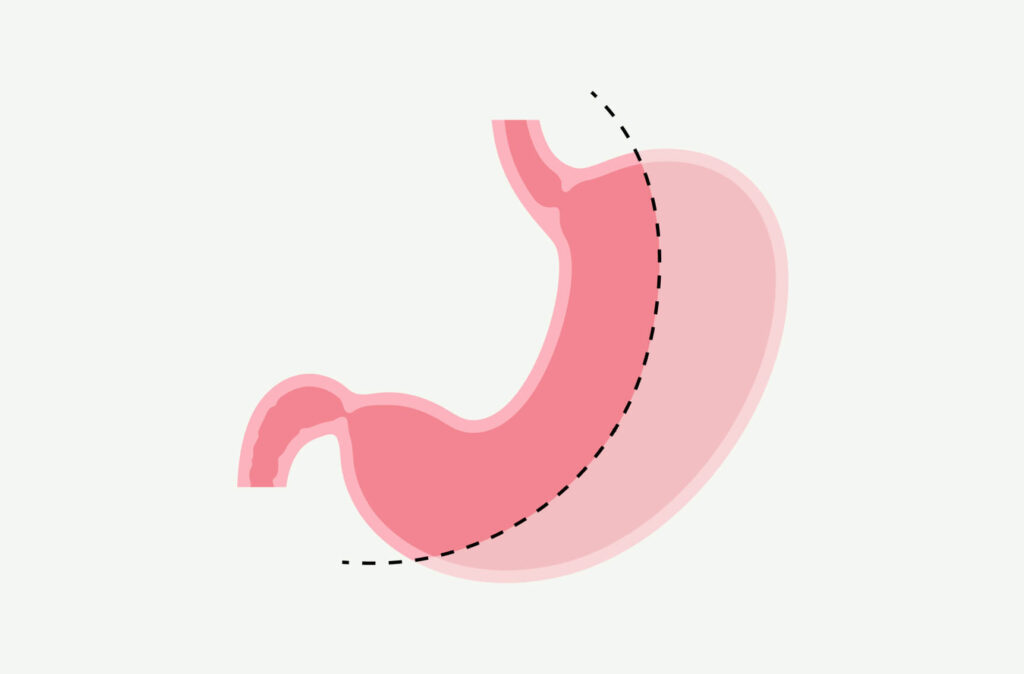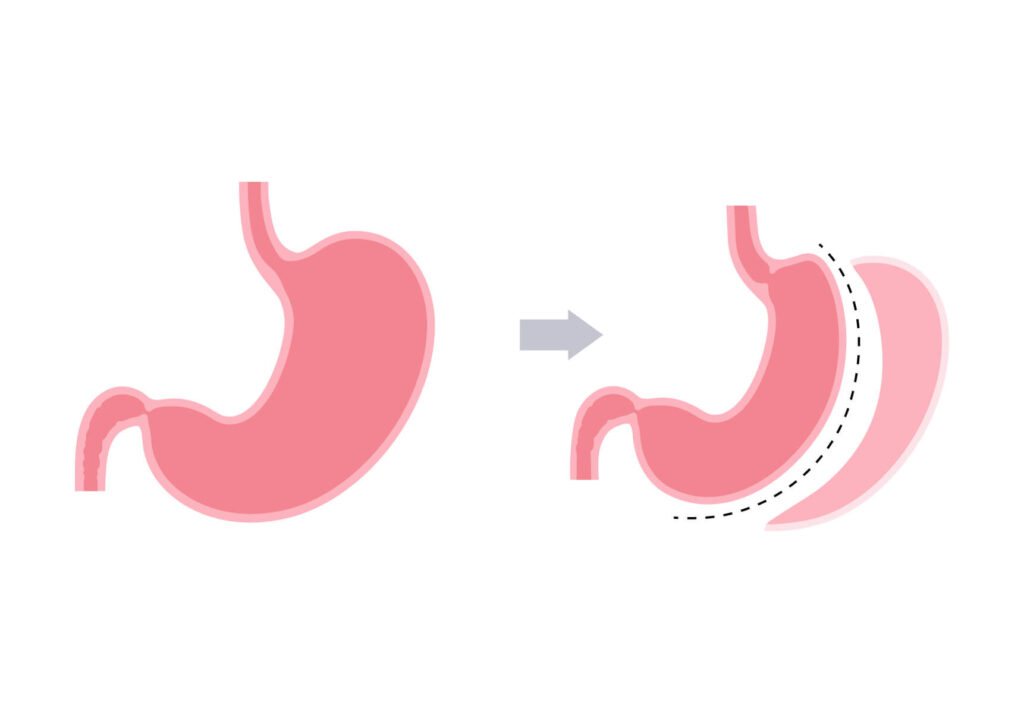NEW ALTERNATIVE
What is Gastric Sleeve Surgery?
Gastric sleeve surgery, also known as sleeve gastrectomy, is a type of bariatric (weight-loss) surgery. It involves removing a large portion of the stomach, leaving behind a tube-like or sleeve-shaped stomach. This procedure aims to limit the amount of food a person can eat, helping them lose weight. Here’s a breakdown of how it works, the benefits, and what to expect:

How Gastric Sleeve Surgery Works

Around 75-80% of the stomach is surgically removed laparoscopically.
The remaining stomach is shaped like a narrow tube or sleeve, about the size of a banana. The smaller stomach means patients feel full with smaller meals and eat fewer calories.
Benefits of Gastric Sleeve Surgery
- Weight Loss: Patients can lose up to 60-70% of excess body weight within 1-2 years.
- Appetite Reduction: The part of the stomach removed produces ghrelin, a hormone that stimulates hunger, so appetite decreases.
- Health Improvement: Many patients see improvements in obesity-related conditions like:
- Type 2 diabetes
- High blood pressure
- Sleep apnea
- Joint pain
- Simpler Procedure: Compared to gastric bypass, it involves no rerouting of intestines, making it less complex.

Community Questions
What is gastric sleeve surgery?
Gastric sleeve surgery, also known as sleeve gastrectomy, is a weight loss procedure where a large portion of the stomach is removed, leaving a smaller, tube-shaped stomach. This limits the amount of food you can eat and helps reduce hunger, leading to significant weight loss.
Who is a good candidate for gastric sleeve surgery?
Candidates for gastric sleeve surgery are typically individuals with a Body Mass Index (BMI) of 40 or higher or those with a BMI of 35-39.9 with obesity-related health conditions, such as diabetes, hypertension, or sleep apnea. Additionally, candidates should have tried non-surgical methods for weight loss without success.
What are the benefits of gastric sleeve surgery?
Gastric sleeve surgery can lead to substantial weight loss, improvement in obesity-related conditions such as diabetes, high blood pressure, and sleep apnea, and an overall improvement in quality of life. It is a minimally invasive surgery with a lower risk of complications compared to other bariatric procedures.
How long is the recovery time after gastric sleeve surgery?
Most patients stay in the hospital for 1-2 days after surgery and can return to normal activities in about 2-4 weeks. Full recovery and adjustment to the new eating habits can take several months, with patients needing to follow a strict post-op diet and exercise plan.
Are there any risks or complications associated with gastric sleeve surgery?
As with any surgery, gastric sleeve surgery carries some risks, including infection, bleeding, blood clots, and complications from anesthesia. Long-term risks can include nutrient deficiencies, acid reflux, and in rare cases, the need for further surgery. It’s important to discuss these risks thoroughly with your surgeon before the procedure.
Ready to Schedule a Consultation?
Transformations Happen Daily at Grand Health Partners! Take the first step to life change and schedule a consultation with our office.
